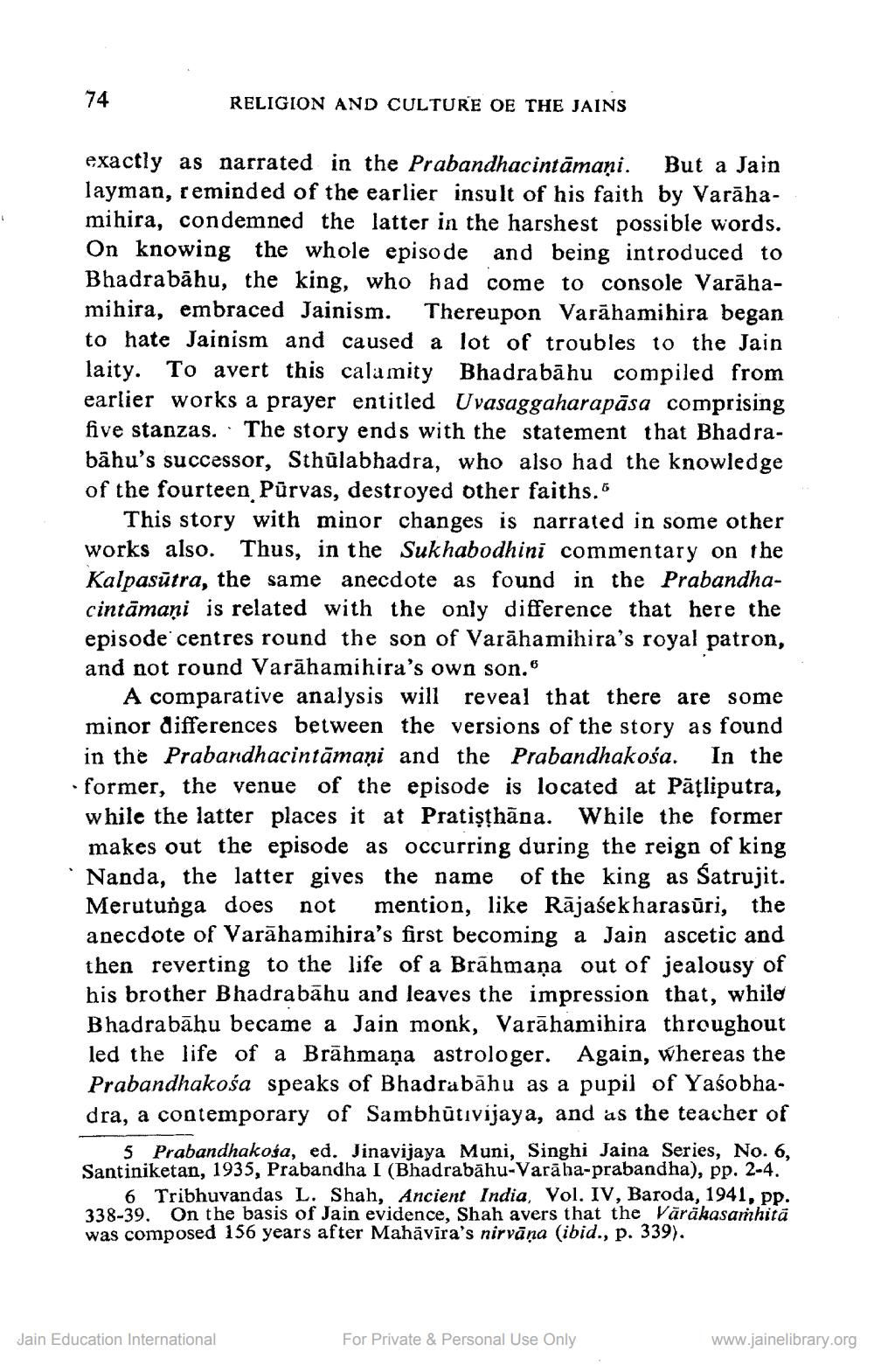________________
74
RELIGION AND CULTURE OE THE JAINS
exactly as narrated in the Prabandhacintāmaņi. But a Jain layman, reminded of the earlier insult of his faith by Varāhamihira, condemned the latter in the harshest possible words. On knowing the whole episode and being introduced to Bhadrabāhu, the king, who had come to console Varāhamihira, embraced Jainism. Thereupon Varāhamihira began to hate Jainism and caused a lot of troubles to the Jain laity. To avert this calamity Bhadrabāhu compiled from earlier works a prayer entitled Uvasaggaharapāsa comprising five stanzas. The story ends with the statement that Bhadrabāhu's successor, Sthūlabhadra, who also had the knowledge of the fourteen Pūrvas, destroyed other faiths.
This story with minor changes is narrated in some other works also. Thus, in the Sukhabodhini commentary on the Kalpasūtra, the same anecdote as found in the Prabandhacintāmaņi is related with the only difference that here the episode centres round the son of Varāhamihira's royal patron, and not round Varāhamihira's own son.
A comparative analysis will reveal that there are some minor differences between the versions of the story as found in the Prabandhacintāmaņi and the Prabandhakośa. In the • former, the venue of the episode is located at Pāțliputra, while the latter places it at Pratişthāna. While the former makes out the episode as occurring during the reign of king Nanda, the latter gives the name of the king as Satrujit. Merutunga does not mention, like Rājasekharasūri, the anecdote of Varāhamihira's first becoming a Jain ascetic and then reverting to the life of a Brāhmaṇa out of jealousy of his brother Bhadrabāhu and leaves the impression that, while Bhadrabāhu became a Jain monk, Varāhamihira throughout led the life of a Brāhmaṇa astrologer. Again, whereas the Prabandhakośa speaks of Bhadrabāhu as a pupil of Yaśobhadra, a contemporary of Sambhūtīvijaya, and as the teacher of
5 Prabandhakoja, ed. Jinavijaya Muni, Singhi Jaina Series, No. 6, Santiniketan, 1935, Prabandha I (Bhadrabāhu-Varāha-prabandha), pp. 2-4.
6 Tribhuvandas L. Shah, Ancient India, Vol. IV, Baroda, 1941, pp. 338-39. On the basis of Jain evidence, Shah avers that the Vāräkasamhita was composed 156 years after Mahāvīra's nirvana (ibid., p. 339).
Jain Education International
For Private & Personal Use Only
www.jainelibrary.org




